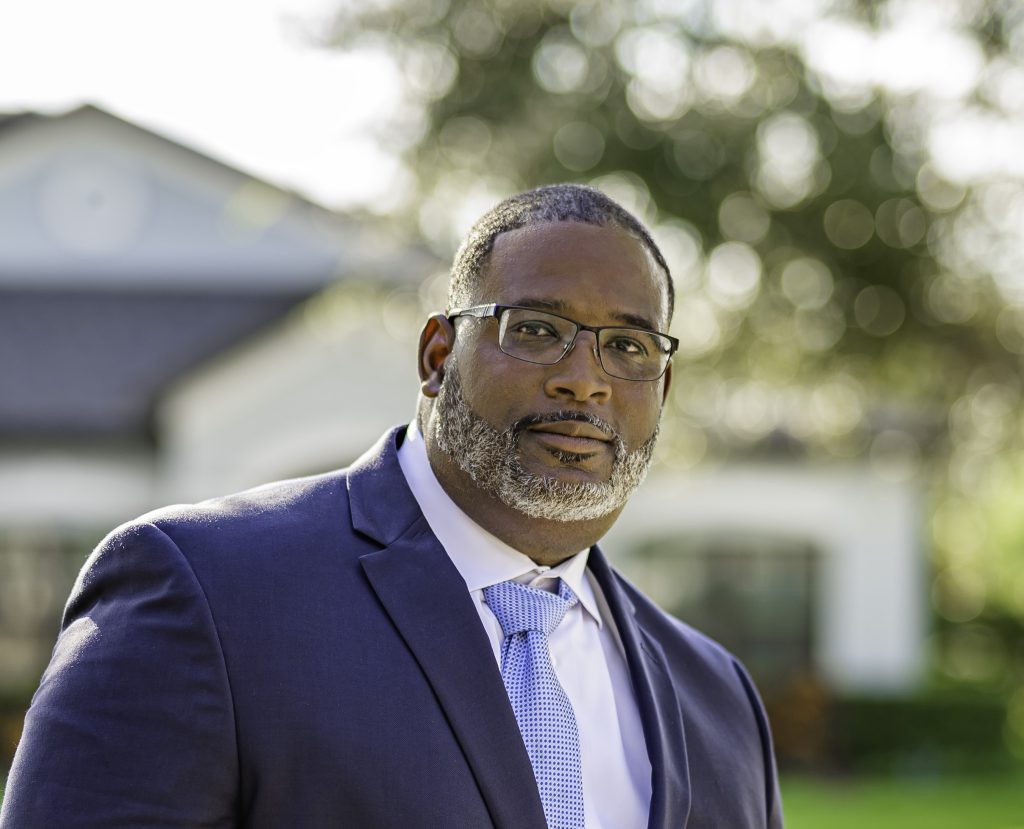Real estate professionals take pride in their ability to guide homebuyers through one of the biggest financial decisions of their lives. However, not everyone is afforded the same opportunities and treatment as they begin the homebuying process. As we continue our National Fair Housing Month series, we find there remains work to be done to create equitable opportunities for people of all identities to purchase a home.
This week, we spoke with Booker Pickett, broker-owner of Coldwell Banker Pickett Fences Realty, about how real estate professionals and communities alike can advocate for Black and Brown people in securing equal opportunities and challenging current biases in the homebuying process.

How has fair housing progressed over the past few years?
Pickett: It is important to recognize the tremendous progress achieved in fair housing following the Civil Rights Act of 1964, including progress within lending programs and practices; when looking at credit as it relates to Black and Brown communities, some of the alternative credits are not as biased as before. Additionally, as I speak with you today, I would like to highlight that as a Black owner of multiple real estate franchises, that in itself is progress and something that previously would not have been a possibility for my community.
While great strides have been made, we should also acknowledge the areas that have remained stagnant or made limited advancement, including the growing gap between Black and White homeowners. Black Americans make up 45% of today’s homeowners, just a slight increase from the previous rate of 42% in 1970 a few years after the Fair Housing Act was signed in 1968. With increased fair housing laws and advocacy, we can help Black and Brown communities purchase a home without barriers and discrimination.
What has been your personal experience been when advocating for fair housing?
Pickett: As a Black man in the real estate industry, there are many issues that I come across daily – the most common being bias in the appraisal process. Although I work with my clients to address these hurdles, it is important to recognize the longstanding discrimination and stereotypes that Black and Brown people continue to encounter when meeting with a licensed appraiser who will evaluate the property and offer and estimate of the home’s value.
Discrimination is not limited to the appraisal process. Loan officers and title companies can also exhibit bias, creating another hurdle for Black and Brown people and limiting the possibility of securing a mortgage.
What still needs to be done to create equal housing opportunities for all?
Pickett: To be completely transparent, we need increased discussion. While it is great to have a month dedicated to reflecting on current and past housing discrimination and the promotion of equality in the homebuying process, it is very unfortunate that we only have this conversation one month out of the year. Instead, we should be having this conversation 365 days a year because discussing issues that affect our businesses, communities, wealth building and ability to progress should be at the forefront of people’s minds.
Additionally, there are many systemic barriers that will take continuous efforts to overcome. I’m a sports guy, so putting this into a sports perspective, Black folks may be starting on the five-yard line of a football field, while others who do not face discrimination for their identities are already at the goal line. In my opinion, attempting to keep homes affordable, using alternative credit reports and ensuring the appraisal bias is stamped out are all active efforts taking place to stay on track with progression and help decrease the homeownership gap between the Black and Brown communities and the White community.
Lastly, we have to be the change. Black appraisers make up around 2% of the appraisal industry – we need to increase exposure about this career to Black and Brown folks because at the end of the day, people will work with people who look like them and represent their community. It’s easier said than done, but if an appraiser is completing work in an area they are familiar with, they likely don’t have any built-in biases or judgements. Exposing different communities to these careers and opportunities can have a positive impact on the housing industry.
How do including and representation impact fair housing?
Pickett: It’s one thing to be included, it’s another to be equitable. As a Black man, I’m allowed to sit at the table, but do I get the same treatment and access as everyone else at the table? Marginalized communities may have the opportunity to purchase a home but may not be receiving the same treatment from agents, appraisers, loan officers and other housing professionals as homebuyers who do not face biases. We need to establish equal opportunities for all communities to receive the support they need to achieve their homeownership dreams.
Ongoing Advocacy
We are grateful to have Booker’s thoughts on the current barriers preventing Black and Brown communities from purchasing their dream home, the work that remains to make further advancement in fair housing and the efforts that need to be made every day, not just during Fair Housing Month. Visit the Blue Matter blog next week to read how Cindy Hanson, broker-owner of Coldwell Banker Select, is an active ally to her communities and advocates for equal opportunities for all.






